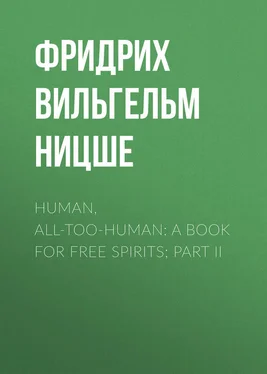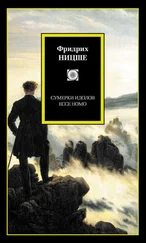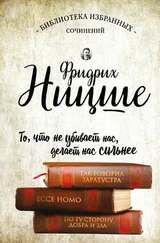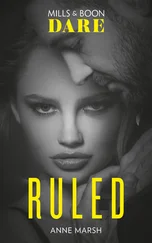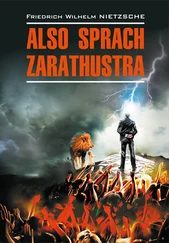Фридрих Ницше - Human, All-Too-Human - A Book For Free Spirits; Part II
Здесь есть возможность читать онлайн «Фридрих Ницше - Human, All-Too-Human - A Book For Free Spirits; Part II» — ознакомительный отрывок электронной книги совершенно бесплатно, а после прочтения отрывка купить полную версию. В некоторых случаях можно слушать аудио, скачать через торрент в формате fb2 и присутствует краткое содержание. Жанр: Философия, literature_19, foreign_antique, foreign_prose, на английском языке. Описание произведения, (предисловие) а так же отзывы посетителей доступны на портале библиотеки ЛибКат.
- Название:Human, All-Too-Human: A Book For Free Spirits; Part II
- Автор:
- Жанр:
- Год:неизвестен
- ISBN:нет данных
- Рейтинг книги:3 / 5. Голосов: 1
-
Избранное:Добавить в избранное
- Отзывы:
-
Ваша оценка:
- 60
- 1
- 2
- 3
- 4
- 5
Human, All-Too-Human: A Book For Free Spirits; Part II: краткое содержание, описание и аннотация
Предлагаем к чтению аннотацию, описание, краткое содержание или предисловие (зависит от того, что написал сам автор книги «Human, All-Too-Human: A Book For Free Spirits; Part II»). Если вы не нашли необходимую информацию о книге — напишите в комментариях, мы постараемся отыскать её.
Human, All-Too-Human: A Book For Free Spirits; Part II — читать онлайн ознакомительный отрывок
Ниже представлен текст книги, разбитый по страницам. Система сохранения места последней прочитанной страницы, позволяет с удобством читать онлайн бесплатно книгу «Human, All-Too-Human: A Book For Free Spirits; Part II», без необходимости каждый раз заново искать на чём Вы остановились. Поставьте закладку, и сможете в любой момент перейти на страницу, на которой закончили чтение.
Интервал:
Закладка:
The Value of Honest Books. – Honest books make the reader honest, at least by exciting his hatred and aversion, which otherwise cunning cleverness knows so well how to conceal. Against a book, however, we let ourselves go, however restrained we may be in our relations with men.
How Art makes Partisans. – Individual fine passages, an exciting general tenor, a moving and absorbing finale – so much of a work of art is accessible even to most laymen. In an art period when it is desired to win over the great majority of the laymen to the side of the artists and to make a party perhaps for the very preservation of art, the creative artist will do well to offer nothing more than the above. Then he will not be a squanderer of his strength, in spheres where no one is grateful to him. For to perform the remaining functions, the imitation of Nature in her organic development and growth, would in that case be like sowing seeds in water.
Becoming Great to the Detriment of History. – Every later master who leads the taste of art-lovers into his channel unconsciously gives rise to a selection and revaluation of the older masters and their works. Whatever in them is conformable and akin to him, and anticipates and foreshadows him, appears henceforth as the only important element in them and their works – a fruit in which a great error usually lies hidden like a worm.
How an Epoch becomes Lured to Art. – If we teach people by all the enchantments of artists and thinkers to feel reverence for their defects, their intellectual poverty, their absurd infatuations and passions (as it is quite possible to do); if we show them only the lofty side of crime and folly, only the touching and appealing element in weakness and flabbiness and blind devotion (that too has often enough been done): – we have employed the means for inspiring even an unphilosophical and inartistic age with an ecstatic love of philosophy and art (especially of thinkers and artists as personalities) and, in the worst case, perhaps with the only means of defending the existence of such tender and fragile beings.
Criticism and Joy. – Criticism, one-sided and unjust as well as intelligent criticism, gives so much pleasure to him who exercises it that the world is indebted to every work and every action that inspires much criticism and many critics. For criticism draws after it a glittering train of joyousness, wit, self-admiration, pride, instruction, designs of improvement. – The God of joy created the bad and the mediocre for the same reason that he created the good.
Beyond his Limits. – When an artist wants to be more than an artist – for example, the moral awakener of his people – he at last falls in love, as a punishment, with a monster of moral substance. The Muse laughs, for, though a kind-hearted Goddess, she can also be malignant from jealousy. Milton and Klopstock are cases in point.
A Glass Eye. – The tendency of a talent towards moral subjects, characters, motives, towards the “beautiful soul” of the work of art, is often only a glass eye put on by the artist who lacks a beautiful soul. It may result, though rarely, that his eye finally becomes living Nature, if indeed it be Nature with a somewhat troubled look. But the ordinary result is that the whole world thinks it sees Nature where there is only cold glass.
Writing and Desire for Victory. – Writing should always indicate a victory, indeed a conquest of oneself which must be communicated to others for their behoof. There are, however, dyspeptic authors who only write when they cannot digest something, or when something has remained stuck in their teeth. Through their anger they try unconsciously to disgust the reader too, and to exercise violence upon him – that is, they desire victory, but victory over others.
A Good Book Needs Time. – Every good book tastes bitter when it first comes out, for it has the defect of newness. Moreover, it suffers damage from its living author, if he is well known and much talked about. For all the world is accustomed to confuse the author with his work. Whatever of profundity, sweetness, and brilliance the work may contain must be developed as the years go by, under the care of growing, then old, and lastly traditional reverence. Many hours must pass, many a spider must have woven its web about the book. A book is made better by good readers and clearer by good opponents.
Extravagance as an Artistic Means. – Artists well understand the idea of using extravagance as an artistic means in order to convey an impression of wealth. This is one of those innocent wiles of soul-seduction that the artist must know, for in his world, which has only appearance in view, the means to appearance need not necessarily be genuine.
The Hidden Barrel-Organ. – Genius, by virtue of its more ample drapery, knows better than talent how to hide its barrel-organ. Yet after all it too can only play its seven old pieces over and over again.
The Name on the Title-Page. – It is now a matter of custom and almost of duty for the author's name to appear on the book, and this is a main cause of the fact that books have so little influence. If they are good, they are worth more than the personalities of their authors, of which they are the quintessences. But as soon as the author makes himself known on the title-page, the quintessence, from the reader's point of view, becomes diluted with the personal, the most personal element, and the aim of the book is frustrated. It is the ambition of the intellect no longer to appear individual.
The Most Cutting Criticism. – We make the most cutting criticism of a man or a book when we indicate his or its ideal.
Little or no Love. – Every good book is written for a particular reader and men of his stamp, and for that very reason is looked upon unfavourably by all other readers, by the vast majority. Its reputation accordingly rests on a narrow basis and must be built up by degrees. – The mediocre and bad book is mediocre and bad because it seeks to please, and does please, a great number.
Music and Disease. – The danger of the new music lies in the fact that it puts the cup of rapture and exaltation to the lips so invitingly, and with such a show of moral ecstasy, that even the noble and temperate man always drinks a drop too much. This minimum of intemperance, constantly repeated, can in the end bring about a deeper convulsion and destruction of mental health than any coarse excess could do. Hence nothing remains but some day to fly from the grotto of the nymph, and through perils and billowy seas to forge one's way to the smoke of Ithaca and the embraces of a simpler and more human spouse.
Advantage for Opponents. – A book full of intellect communicates something thereof even to its opponents.
Youth and Criticism. – To criticise a book means, for the young, not to let oneself be touched by a single productive thought therefrom, and to protect one's skin with hands and feet. The youngster lives in opposition to all novelty that he cannot love in the lump, in a position of self-defence, and in this connection he commits, as often as he can, a superfluous sin.
Effect of Quantity. – The greatest paradox in the history of poetic art lies in this: that in all that constitutes the greatness of the old poets a man may be a barbarian, faulty and deformed from top to toe, and still remain the greatest of poets. This is the case with Shakespeare, who, as compared with Sophocles, is like a mine of immeasurable wealth in gold, lead, and rubble, whereas Sophocles is not merely gold, but gold in its noblest form, one that almost makes us forget the money-value of the metal. But quantity in its highest intensity has the same effect as quality. That is a good thing for Shakespeare.
Читать дальшеИнтервал:
Закладка:
Похожие книги на «Human, All-Too-Human: A Book For Free Spirits; Part II»
Представляем Вашему вниманию похожие книги на «Human, All-Too-Human: A Book For Free Spirits; Part II» списком для выбора. Мы отобрали схожую по названию и смыслу литературу в надежде предоставить читателям больше вариантов отыскать новые, интересные, ещё непрочитанные произведения.
Обсуждение, отзывы о книге «Human, All-Too-Human: A Book For Free Spirits; Part II» и просто собственные мнения читателей. Оставьте ваши комментарии, напишите, что Вы думаете о произведении, его смысле или главных героях. Укажите что конкретно понравилось, а что нет, и почему Вы так считаете.
